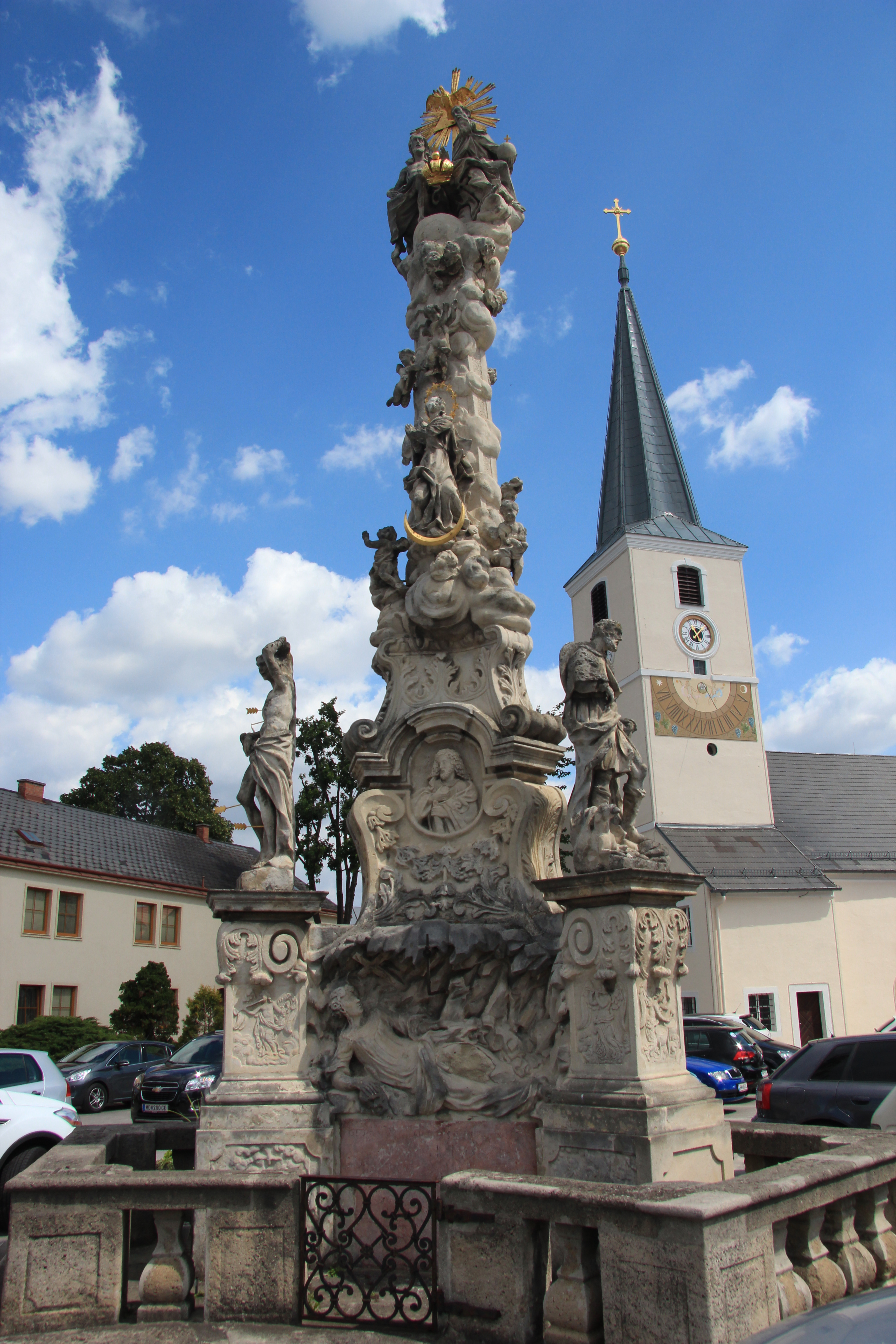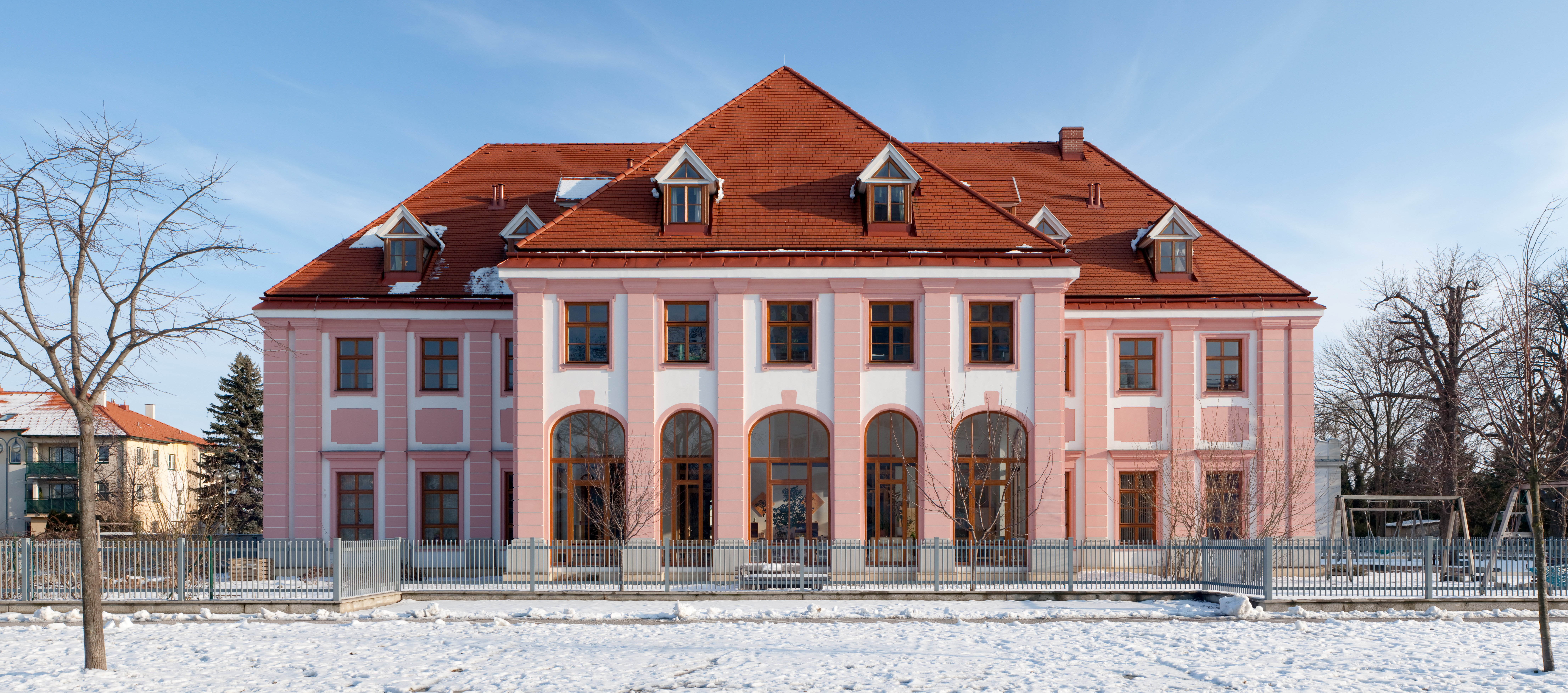Traiskirchen on:
[Wikipedia]
[Google]
[Amazon]
Traiskirchen is a city and

 Traiskirchen is home of the largest refugee camp in Austria and one of the largest of these camps in the EU. The refugee camp is based in the centre of Traiskirchen on the area of the former Imperial Artillery Cadet School which was built in 1900. The Traiskirchen Cadet School could accommodate up to 340 cadets, 160 staff and 110 horses (for riding lessons).
During the time of the
Traiskirchen is home of the largest refugee camp in Austria and one of the largest of these camps in the EU. The refugee camp is based in the centre of Traiskirchen on the area of the former Imperial Artillery Cadet School which was built in 1900. The Traiskirchen Cadet School could accommodate up to 340 cadets, 160 staff and 110 horses (for riding lessons).
During the time of the




 The weir would probably have been built as surrounding water castle around 1120-1230. The wall surrounding the castle and the moult do not existing anymore.
The weir would probably have been built as surrounding water castle around 1120-1230. The wall surrounding the castle and the moult do not existing anymore.
Official Traiskirchen website
{{Authority control Cities and towns in Baden District, Austria Baden District, Austria
Municipality
A municipality is usually a single administrative division having municipal corporation, corporate status and powers of self-government or jurisdiction as granted by national and regional laws to which it is subordinate.
The term ''municipality' ...
in the district of Baden
Baden (; ) is a historical territory in southern Germany. In earlier times it was considered to be on both sides of the Upper Rhine, but since the Napoleonic Wars, it has been considered only East of the Rhine.
History
The margraves of Ba ...
in Lower Austria
Lower Austria ( , , abbreviated LA or NÖ) is one of the nine states of Austria, located in the northeastern corner of the country. Major cities are Amstetten, Lower Austria, Amstetten, Krems an der Donau, Wiener Neustadt and Sankt Pölten, which ...
in Austria
Austria, formally the Republic of Austria, is a landlocked country in Central Europe, lying in the Eastern Alps. It is a federation of nine Federal states of Austria, states, of which the capital Vienna is the List of largest cities in Aust ...
. It is 20 km south of Vienna, in the Thermenlinie region, known for its wine and heuriger
In eastern Austria, a ''Heuriger'' (; Austrian dialect pronunciation: Heiriga, Hungarian language, Hungarian: Kurta kocsma) is a tavern where local winemakers serve their new wine under a special licence in alternating months during the growing ...
s. Traiskirchen is home to the Traiskirchen Lions basketball team. The town has the oldest public astronomical observatory in Lower Austria. The city is also known for its refugee camp the "Bundesbetreuungsstelle fĂĽr Asylwerber".
Municipality
The municipality of Traiskirchen comprise five towns (Population numbers as of 28 February 2023): * Traiskirchen (7,777) * Möllersdorf (5,177) * Wienersdorf (3,427) *Tribuswinkel
Tribuswinkel is a town and cadastral community in the district of Baden (district of Austria), Baden in Lower Austria in northeast Austria. Since 1972, it is part of the Municipality (Austria), Municipality of Traiskirchen.
History
The oldest hi ...
(4,295)
* Oeynhausen (1,413)
Population
The below population numbers include the total of the municipality of Traiskirchen, not just the city itself.Refugee Camp (Bundesbetreuungsstelle fĂĽr Asylwerber)

 Traiskirchen is home of the largest refugee camp in Austria and one of the largest of these camps in the EU. The refugee camp is based in the centre of Traiskirchen on the area of the former Imperial Artillery Cadet School which was built in 1900. The Traiskirchen Cadet School could accommodate up to 340 cadets, 160 staff and 110 horses (for riding lessons).
During the time of the
Traiskirchen is home of the largest refugee camp in Austria and one of the largest of these camps in the EU. The refugee camp is based in the centre of Traiskirchen on the area of the former Imperial Artillery Cadet School which was built in 1900. The Traiskirchen Cadet School could accommodate up to 340 cadets, 160 staff and 110 horses (for riding lessons).
During the time of the Allied-occupied Austria
Austria was occupied by the Allies of World War II, Allies and declared independence from Nazi Germany on 27 April 1945 (confirmed by the Berlin Declaration (1945), Berlin Declaration for Germany on 5 June 1945), as a result of the Vienna offen ...
, a Soviet army barracks of (about 2,000 Soviet armored troops) and a hospital were housed in the former buildings until the autumn of 1955.
The buildings were first used by the government as a refugee camp between 1956 and 1960. The camp was first used as a shelter for Hungarian refugees, who had left their country as a result of the Hungarian Revolution in November 1956. 113,810 people came to Austria on the 5th of November, and 6,000 were taken to the camp in Traiskirchen. This was the first large use as a refugee camp, and following this it was decided to host further refugees from around the world. On 8 March 1957 the Federal Ministry of the Interior assigned 20 million Schillings (€1.45 million) for the renovation of the building structures. After the Prague Spring (1968) Czech and Slovak refugees were brought here. In the 1970s and 1980s more refugees – mainly from Eastern Europe, but also from Uganda, Chile, Iran, Iraq and Vietnam – were accommodated. Many prominent refugees were initially received here, including the later Vienna State Opera Director Ioan Holender and the journalist Paul Lendvai.
In May 1990 it was announced by the Mayor of Traiskirchen that, in line with the promise by the Minister of the Interior, the institute would be closed permanently. However this plan was rejected, because only a few refugees could be accommodated elsewhere in 1990; also it was expected that accommodation for new refugees from the Soviet Union would be needed in January 1991.
In 1993 the refugee camp was renamed the Asylum Office of the Federal Ministry of the Interior ("Bundesbetreuungsstelle fĂĽr Asylwerber").
In 2015, as a result of the European migrant crisis
The 2015 European migrant crisis was a period of significantly increased movement of refugees and Human migration, migrants into Europe, mostly from the Middle East. An estimated 1.3 million people came to the continent to request Right of asyl ...
, the Asylum Office had to admit an increasing number of illegal immigrants. Following strong criticism from the press and the public, Amnesty International
Amnesty International (also referred to as Amnesty or AI) is an international non-governmental organization focused on human rights, with its headquarters in the United Kingdom. The organization says that it has more than ten million members a ...
inspected the facility on 6 August 2015.
By the end of July 2015 more than 4,500 people were being accommodated. On 5 August, the day before the inspection, the authorities declared a stop to further admissions. Nevertheless at the time of the inspection around 1,500 people were unsheltered, among them more than 500 unattended children and teenagers.
According to the Amnesty report the conditions at the refugee camp were inhumane and unworthy of any human being: lack of staff and translators, lack of organization, food supply problems (two hours wait), terrible sanitary conditions, no separate sections for women and men, and a point system for punishment for fighting but also for complaints, resulting in spending several nights outside the facility.
Issues
Traiskirchen refugee camp is frequently subject to political and media debate in Austria. Refugees' poor living conditions have been criticized, and the inmates have been associated with drug dealing, theft and violent crime. The police are often accused of conducting semi-legal actions in raids both inside and outside the camp. In 2003, the Interior Minister, Ernst Strasser, outsourced the camp to the German company European Home Care. This (criticized) contract was cancelled by the company in 2010 because of low occupancy.Education
Kindergarten
* Kindergarten Möllersdorf Pestalozzi-Gasse * Kindergarten Möllesdorf Schlössl * Kindergarten Traiskirchen Bärenhöhle * Kindergarten Traiskirchen Biberburg * Kindergarten Traiskirchen Alfons Petzold * Kindergarten Tribuswinkel Schloss * Kindergarten Tribuswinkel Badner Straße * Kindergarten Wienersdorf * Oeynhausen Pfarrkindergarten from the churchSchools
Primary school
*Volksschule
The German term ''Volksschule'' () generally refers to compulsory education, denoting an educational institution every person (i.e. the people, ''Volk'') is required to attend.
In Germany and Switzerland it is equivalent to a combined primar ...
Möllersdorf
* Volksschule Tribuswinkel
* Volksschule Traiskirchen
The primary school in Traiskirchen is encircled by a fence for security purposes.
Secondary school
* Sport Middleschool TraiskirchenSchool for disabled pupils
* TraiskirchenPolice education school
The "Bildungszentrum der Sicherheitsexekutive (BZS)" Traiskirchen is an education institution for the Austrian police.Issues
The percentage of foreigners in the secondary and primary schools sometimes exceeds 70% and is often discussed in the public. Traiskirchen has no highschool or college for higher education.Sights
Franz-Koller Observatory
This observatory is the oldest in the state of Lower Austria and has been open to the public since 1967. It is unlike many observatories due to its location in the middle of the city and its low elevation, making it susceptible to the winter fog that plagues the region.St. Nicholas Church
This church is notable for its age. It was built around the year 1400.St. Margaret Church
The church was rebuilt in 1683 after the siege of Vienna based on its gothic foundations.
Lutheran Church
The church was built 1913.The Geldscheisser
The famous "Geldscheisser" is located in the city centre.Malt Factory
The malt factory was owned by the banker Max Mauthner (born 22. Juli 1838 in Prague, †28. Dezember 1904 in Vienna).Castle of Moellersdorf
The castle was erected about 1690–1700 from Thomas Zachäus Czernin von und zu Chudenitz. About 1780 Joseph II dedicated the facility to a casern.
Castle of Tribuswinkel
The founding is dated 1136, but earlier resourcers refer to 1120.Basketball
The city is home to the Traiskirchen Lions, 3-time Champion of theĂ–sterreichische Basketball Bundesliga
The Austrian Basketball Bundesliga (in German: Österreichische Basketball Bundesliga) was the top men's professional basketball league in Austria. Until the 2004–05 season, the league was known as the A-Liga (A-League) and then until the 2008� ...
. The team plays its home games in the ''Lions Dome''.
People
* Joseph Fendi, the father of the painter Peter Fendi came from Traiskirchen * Hans Seischab (1898-1965), professor of Business Administration * Hellmuth Swietelsky (1905-1995), businessman and founder of a construction company * Franz Kroller (1923-2000), director of the University Library Graz * Otto Vogl (1927-2013), chemist * Harald Neudorfer (born 1962), professor of propulsion technology * Andreas Babler (born 1973), chair of theSocial Democratic Party of Austria
The Social Democratic Party of Austria ( , SPĂ–) is a social democratic political party in Austria. Founded in 1889 as the Social Democratic Workers' Party of Austria (, SDAPĂ–) and later known as the Socialist Party of Austria () from 1945 unt ...
, Vice-Chancellor of Austria
The vice-chancellor of Austria is a member of the Government of Austria and is the deputy to the Chancellor. It is functionally equivalent to a deputy prime minister in other countries with parliamentary systems.
The current vice-chancellor ...
References
External links
Official Traiskirchen website
{{Authority control Cities and towns in Baden District, Austria Baden District, Austria